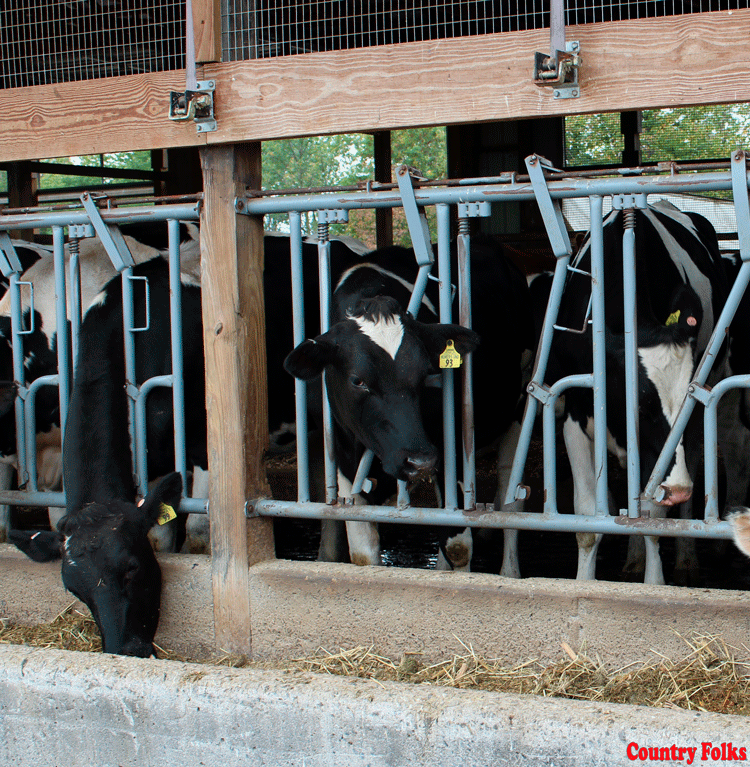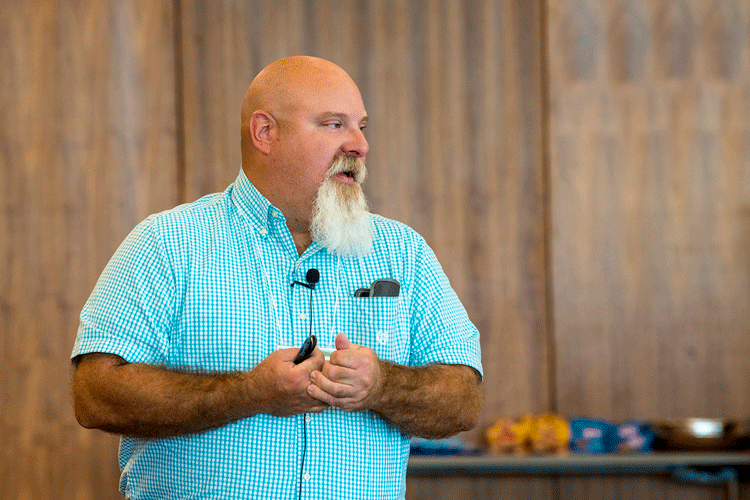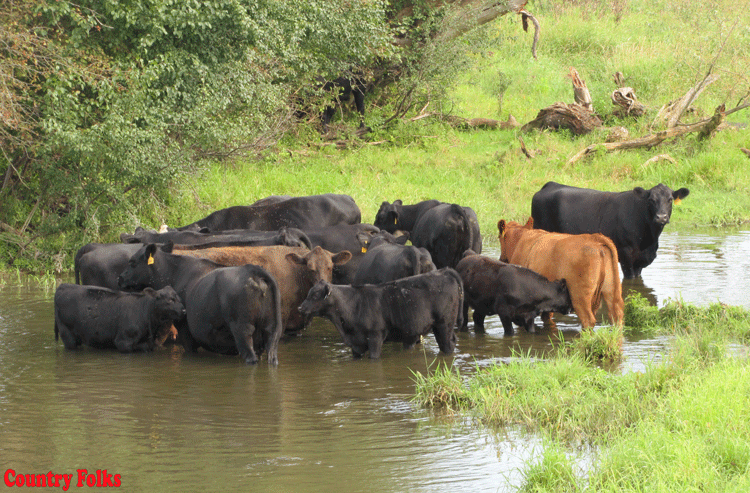 by Steve Wagner
by Steve Wagner
The FFA paused from its hectic daily schedule on March 11 to thank legislators for acting, or enacting, on their behalf and on behalf of the citizens of the commonwealth. Bills that range from bounties on coyotes to tractor driving and a host of other agriculture-related legal concerns are matters taken up by state House and Senate members during the past year. Pennsylvania Secretary of Agriculture George Greig added that such legislation helps the Pennsylvania Department of Agriculture to “keep up with our regulatory responsibilities such as inspecting restaurants and school cafeterias, and checking gas pumps to make sure they are dispensing the correct amount of fuel, and keeping our animals and plants safe from disease and pests.”
“Agriculture is critical to Pennsylvania’s economic success,” said Carolyn Dumaresq, Pennsylvania Acting Secretary of Education. “Today’s students must be prepared for the jobs of the 21st century regardless of what sector the students choose to enter. All schools — secondary, career and technical, and post-secondary — must adapt to the changing landscape of the economy.”
“At Columbia Gas, where we serve more than 417,000 customers in 26 counties, we are focused on our mission of providing our customers with safe, reliable and efficient natural gas service,” said Russell Bedell, community relations manager of that company. To the FFA youth, he said “You are the future of Pennsylvania. Partnering with the FFA allows us to put into practice our belief that your education is the foundation of future success.”
An attending FFA member named Austin said though his future plans didn’t include farming, he hoped to have a hand in agriculture somehow, and on an international basis. In chatting with other young men and women of the FFA, this was a familiar scenario. Many young FFA members realize how living and working on the farm has made them the kind of people who can not only face adversity with confidence, but face practically any situation with that same confidence.
Darrell Curtis, another speaker at the breakfast, is president and CEO of Ag Choice Farm Credit. By his own estimation, Ag Choice provides a little over 50 percent of the credit needed by farmers throughout the state. “What we see is world demand growing rapidly for food. Pennsylvania and our country as a whole are very well poised to meet that demand across the globe. In this environment, however, there is an increasingly strong need for leadership.”
At the same time, he said, we’re seeing a changing of the guard in agriculture. It’s no secret that the average age of the Pennsylvania farmer is in the late 50s. Consequently, there are a great number of farm transitions. That pace is expected to accelerate in the next decade.
“I want to encourage you to take a leadership role in whatever you do,” said Curtis, “whether it’s with FFA, in school, at work, or in the communities that you serve. There are many opportunities for you to get involved with leadership which will benefit you in the long run. It will personally benefit you and provide a foundation for you in the future as you become an industry leader.”
“I’ll be the first to admit that I love the FFA,” said Lou Sallie, administrative secretary of the Pennsylvania Farm Bureau. “One of the things I enjoy the most is seeing the state officer team every year, watching them mature and grow and hone their leadership skills.”
Possibly the living embodiment of FFA loyalty and commitment is a gentleman named Richard Waybright. “He was the national vice president for FFA in 1950-51,” said Mike Brammer, PAFFA executive manager. “I’m going to take a guess and say that he is probably the oldest living national officer that has ever served in Pennsylvania. Dick said that this year was the 70th anniversary of putting on his first blue jacket. That’s why he wore it. It was the jacket he wore in 1950-51.”
It’s a jacket that always fits.











Leave A Comment